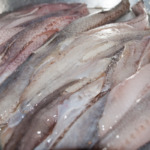
A homemade bombay duck recipe prepared with fresh fish. This fish is briefly dried and then pan cooked in oil with spices.
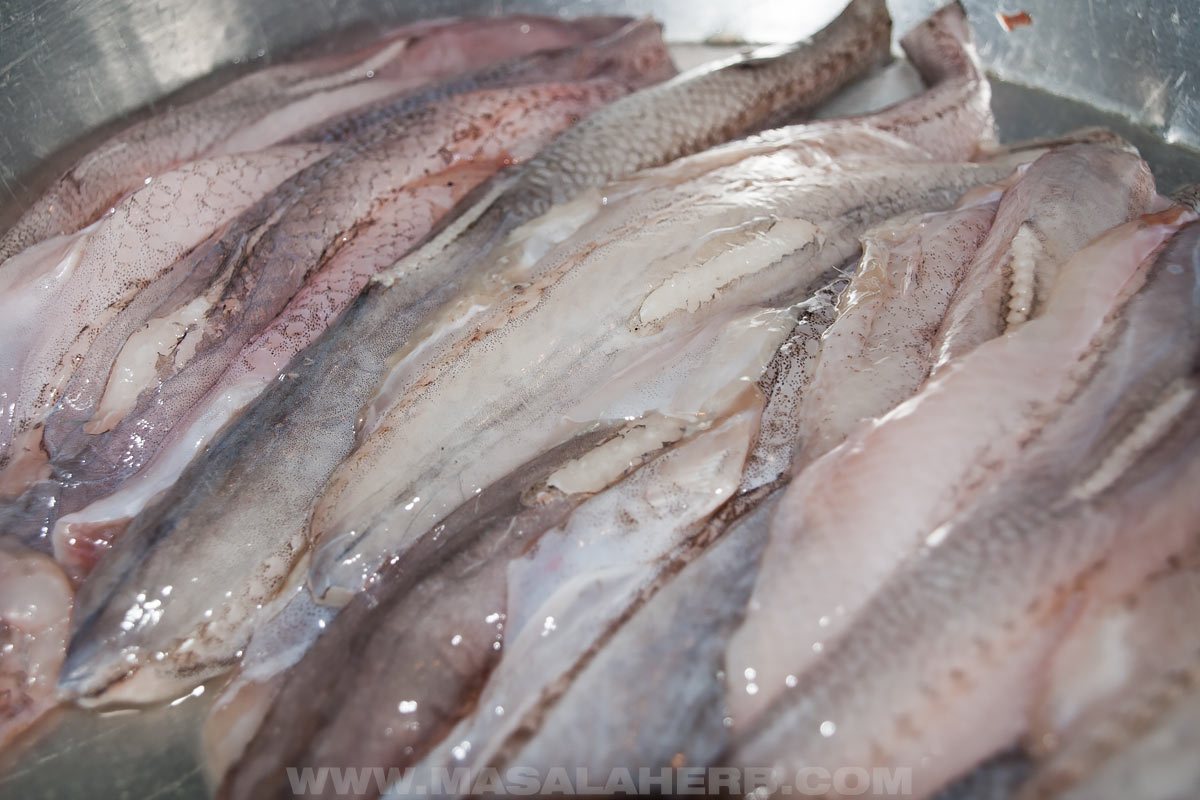
Jump to:
📕 What is Bombay Duck?
Bombay duck, also called Bombil or Bummalo or Bombay dak in Western India, is a small fish with a large jaw.
They are called that way because their habitat is the Mumbai area, and they are also native to the Gujarat and Diu coast.
This type of lizardfish eats mostly shrimp and smaller fish varieties, and they move about in large swarms.
Their appearance will remind you of deep-sea fish, and the flesh appears like jelly. Interestingly, it is said that they emit a phosphorescent glow in the dark.
Bombay duck is a fish mostly enjoyed as a Monsoon delicacy, and it is somewhat a budget-friendly fish compared to other fish varieties of the Indian fish markets.
The value of the fish rose when the British discovered its intriguing taste, when served with rice and curry.
Everybody along the konkan coast knows the stories of how the British mail trains used to transport the fish to other parts of India, including Goa.
Bombay duck was exported for a very long time to the UK, until it was stopped in 1997 due to freshness “issues”.
This fish is special, not only because of its name, but because it is never consumed fresh. Instead, the Bombay duck is salted, left to dry and then cured with spices.
These cured and pickled bombil fish are so popular in Maharashtra and Goa, that they have been sold commercially packed too. These resemble mackerel parra.
The commercial bombay ducks are dried for much longer than this quick from scratch version. Homemade bombil are dried for a little over 2 hours only.
The then dried fish is seasoned with spices and cooked in a skillet with some oil.
Bombay duck has a strong pungent smell and it tastes unique. Therefore, its use is served with cooked rice, curry such as Masoor dal or a Goan red curry and some sautéed or stir-fried spiced local vegetables called bhajis.
The fish itself shrinks when cooked. It's crispy on the outside but tough on the inside.
🐟 Ingredients
Here is a quick overview, please refer to the universal measurements on the recipe card further below.
- Bombay Ducks — fresh (not dried!)
- Salt — sea salt is preferred, but you can use regular salt too.
- Turmeric, ground
- Red Chili Pepper, ground
- Oil — You can use vegetable oil. I like to use mustard oil for flavor. Furthermore, other neutral cooking oils are great, such as sunflower oil or groundnut oil.
🔪 How to clean and dry fresh Bombay Ducks?
For this recipe, you will have to clean and dry your bombil fish.
Step 1
Cut off the large jaw/head and the fins.
Slice open the fish lengthwise to expose the spine.
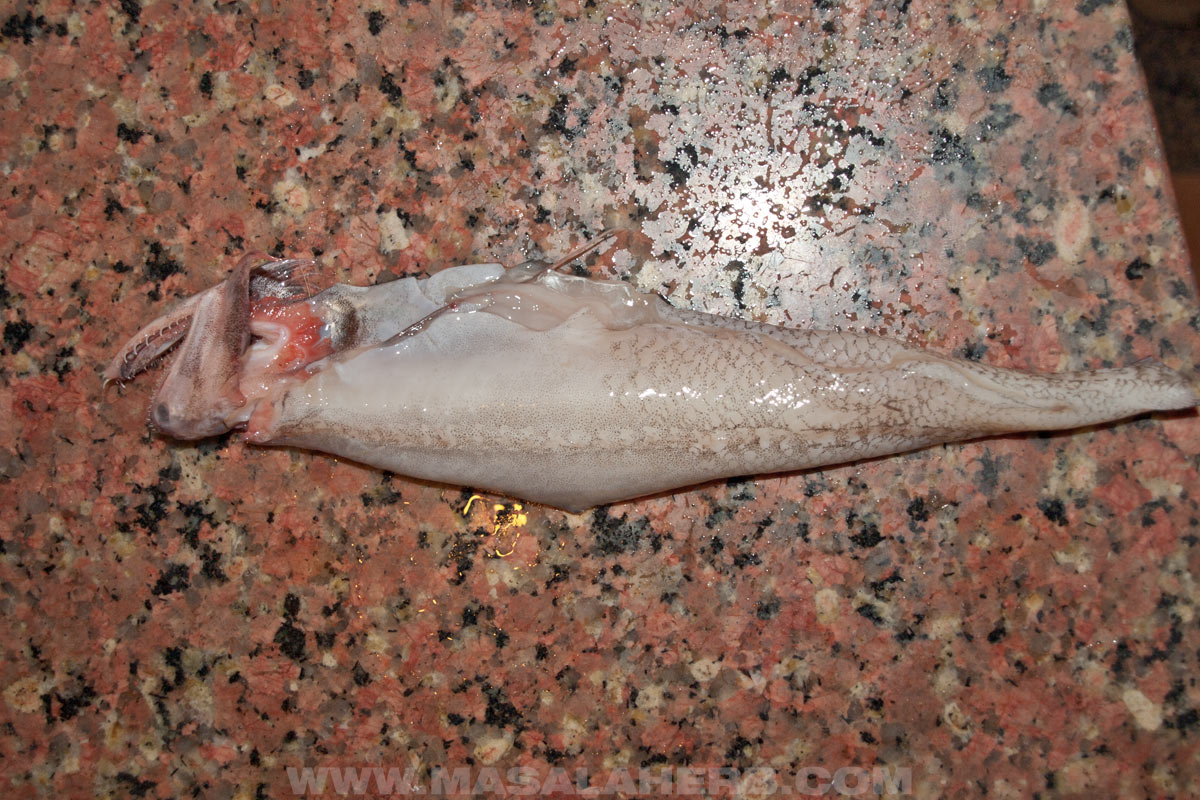
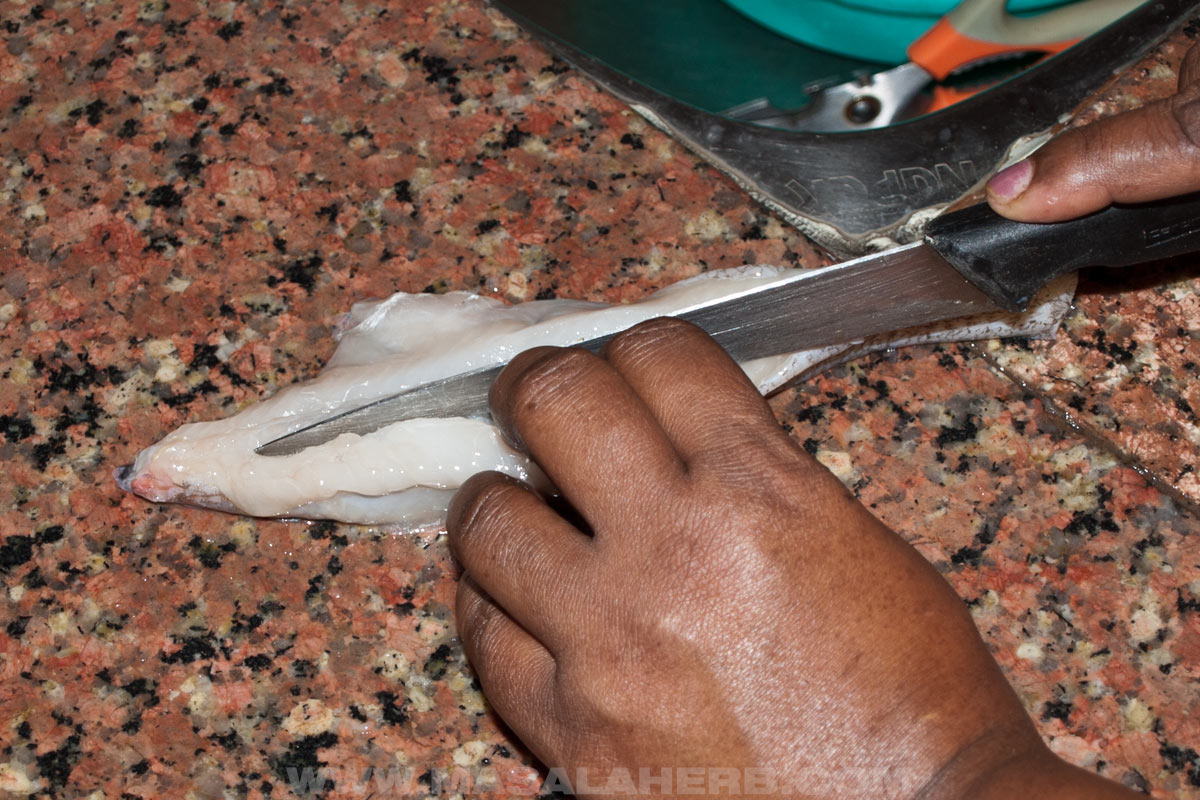
Step 2
With a kitchen scissor, cut the bone off the fish. Each fish should be left boneless.
Rinse fish well and pat dry with a kitchen towel
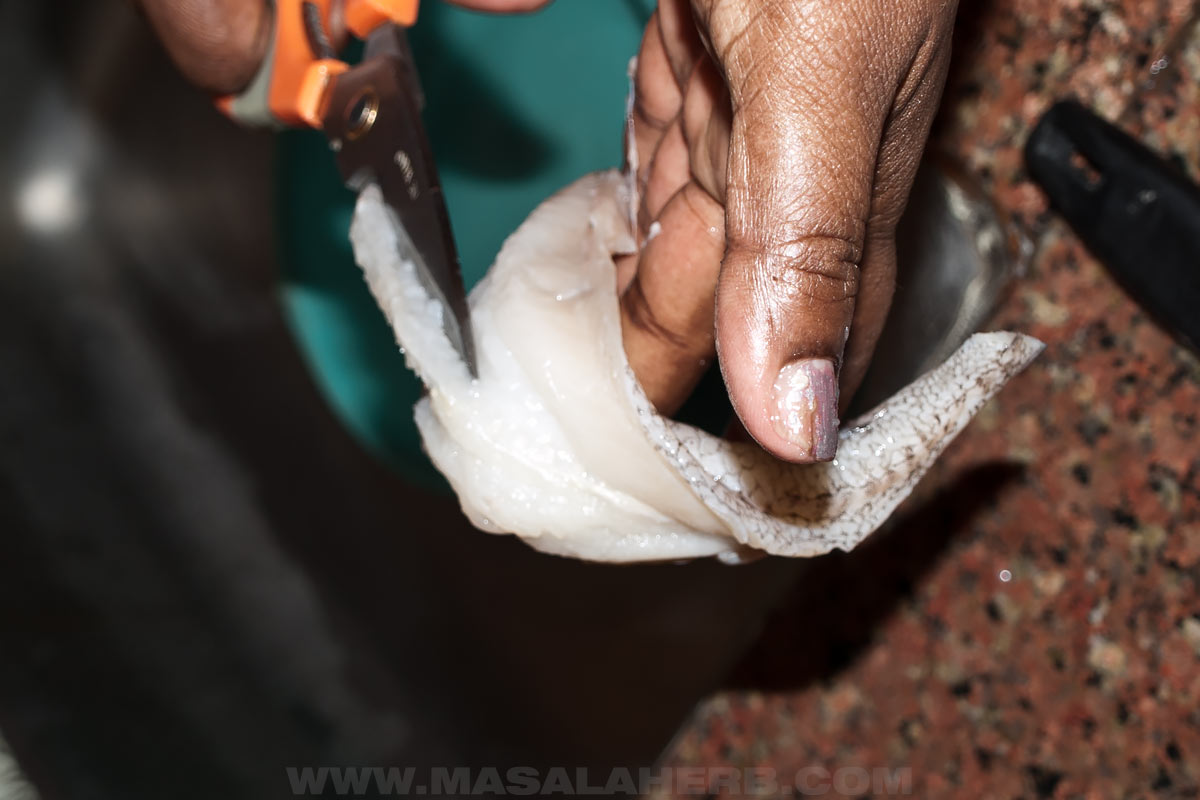
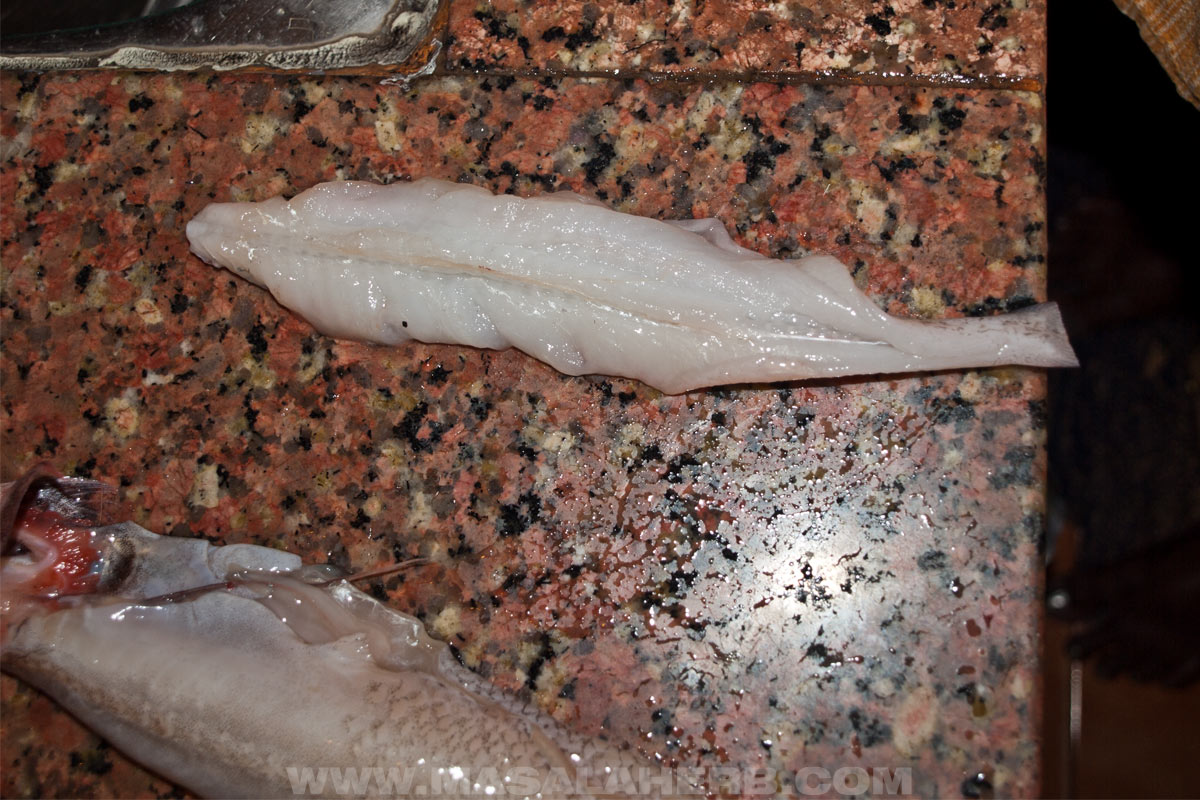
Step 3
With the spine removed, turn around the fish and the fish will be flat.
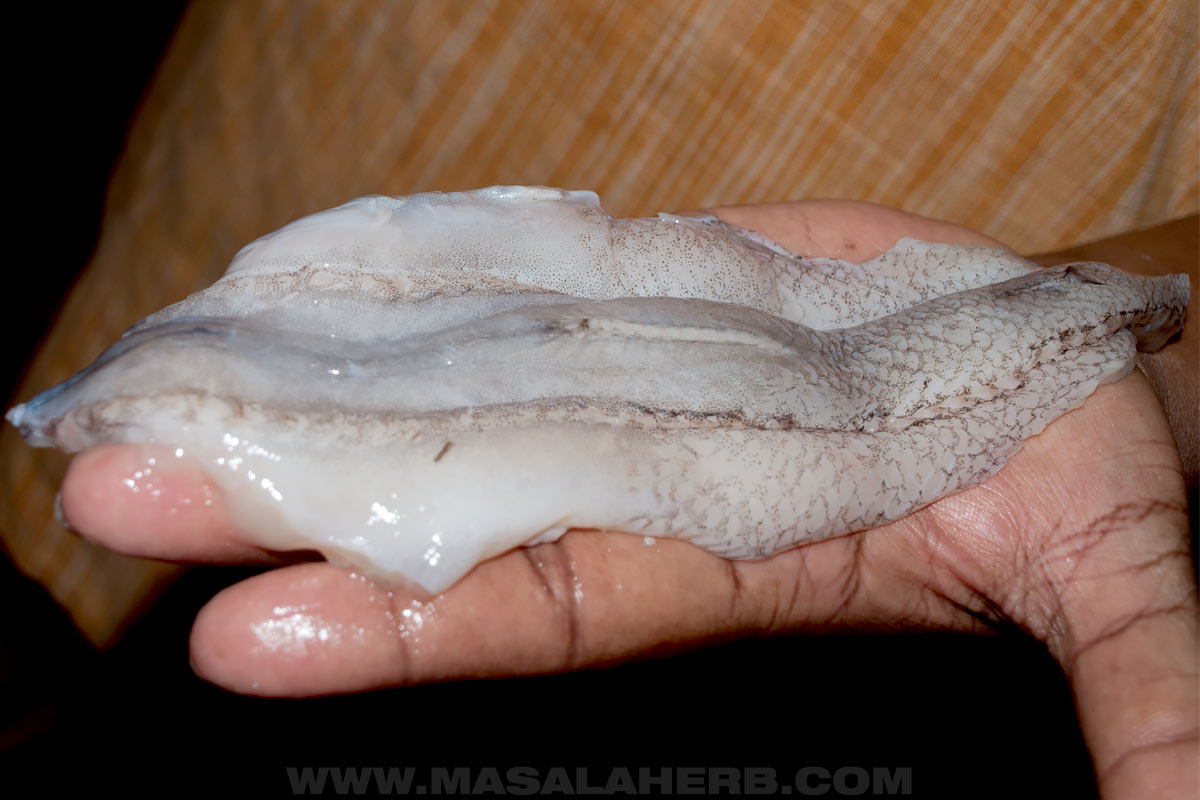
Place the fish flat on a large plate or tray next to each other and sprinkle the salt over the fish.
Keep another plate or tray over the fish, and keep a weight such as a clean large rock over the plate or tray.
Step 4
Place the tray with the fish in a hot place, such as the sun, for about 2 hours. The fish will lose liquid, and they will dry and shrink a bit.
Step 5
When done drying, pat dry the fish with a paper kitchen towel and season and cook as per the recipe instructions.
📖 Recipe
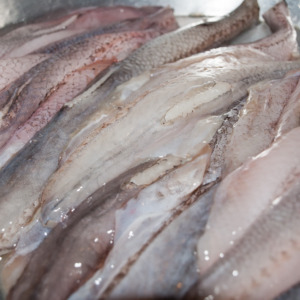
Pan-Fried Spiced Bombay Duck Fish (Bombil)
Ingredients
To Dry
- 9 piece Bombay Ducks fresh
- 4 Tablespoon Sea Salt or regular salt
To Cook
- 2 Teaspoon Turmeric Ground
- 1 Teaspoon Red Chili Pepper Ground or less
- 2 Tablespoon Oil Vegetable oil or similar
Instructions
To clean Bombay Ducks
- Cut off the head of the bombay duck with the large jaw, and the fins.9 piece Bombay Ducks
- The spine on each fish has to be removed. Make a cut across the side of the spine and then cut out the bone with a pair of scissors.
- Rinse fish well and pat dry with a kitchen towel.
- Flatten the fish and stretch out the ends on a large flat plate or tray.
- Sprinkle the salt all over the fish and place another large plate or tray over the fish and keep a large rock or another weight onto the second plate on top. The purpose for that is, that the fish drys out a bit.4 Tablespoon Sea Salt
To dry
- Dry the prepared salted fish with weights for about 2 hours in the sun or in a warm and hot place. The result at the end will be shrunk and dried fish.
To cook
- Remove the fish from the large plate/tray and gently pat dry with a kitchen towel to get rid of excess liquid and salt.
- Season the fish on all sides with ground turmeric and chili pepper powder.2 Teaspoon Turmeric Ground, 1 Teaspoon Red Chili Pepper Ground
- Heat up a skillet with the oil.2 Tablespoon Oil
- Place seasoned bombay duck into the skillet and pan fry over a medium to high heat setting on both sides until it appears crispy golden cooked.
- Serve up hot with Goan rice curry and a vegetable side dish of your choice.
Notes
- 9 small pieces, serve about 3 people. That means 3 pcs per person.
- The bone has to be removed in a fresh Bombay duck, but it can be left in when the fish is further cured and dried because when cured it's not noticeable anymore.
Equipment
- 1 3.5" Paring Knife
- Kitchen Scissors
- 2 Large Trays or Plates with a weight such as a Rock to dry fish
- Kitchen Paper Towel
Nutrition
🍛 Serving
I'm sharing the way the bombay duck is served in Goa (as per Paul's family's customs). The Maharashtrian communities might enjoy this fish a bit differently. Also, east Indians have a version of their own.
Fried and spiced bombil duck is great with Goa rice (a whole rice variety, which is also used to make congee), red curry or masoor daal.
With that always comes a stir-fried or sautéed spiced vegetable side dish, called a bhaji.
🍱 Storing
Leftovers of the cooked fish can be stored in fridge containers. I like to use rectangular glass containers, which can be used in the oven or microwave to reheat the fish.
Note that the fish gets more chewy the next day, so try to avoid leftovers. I recommend preparing a smaller batch instead, or you can clean out your fish and freeze extra pieces to dry and cook another day.
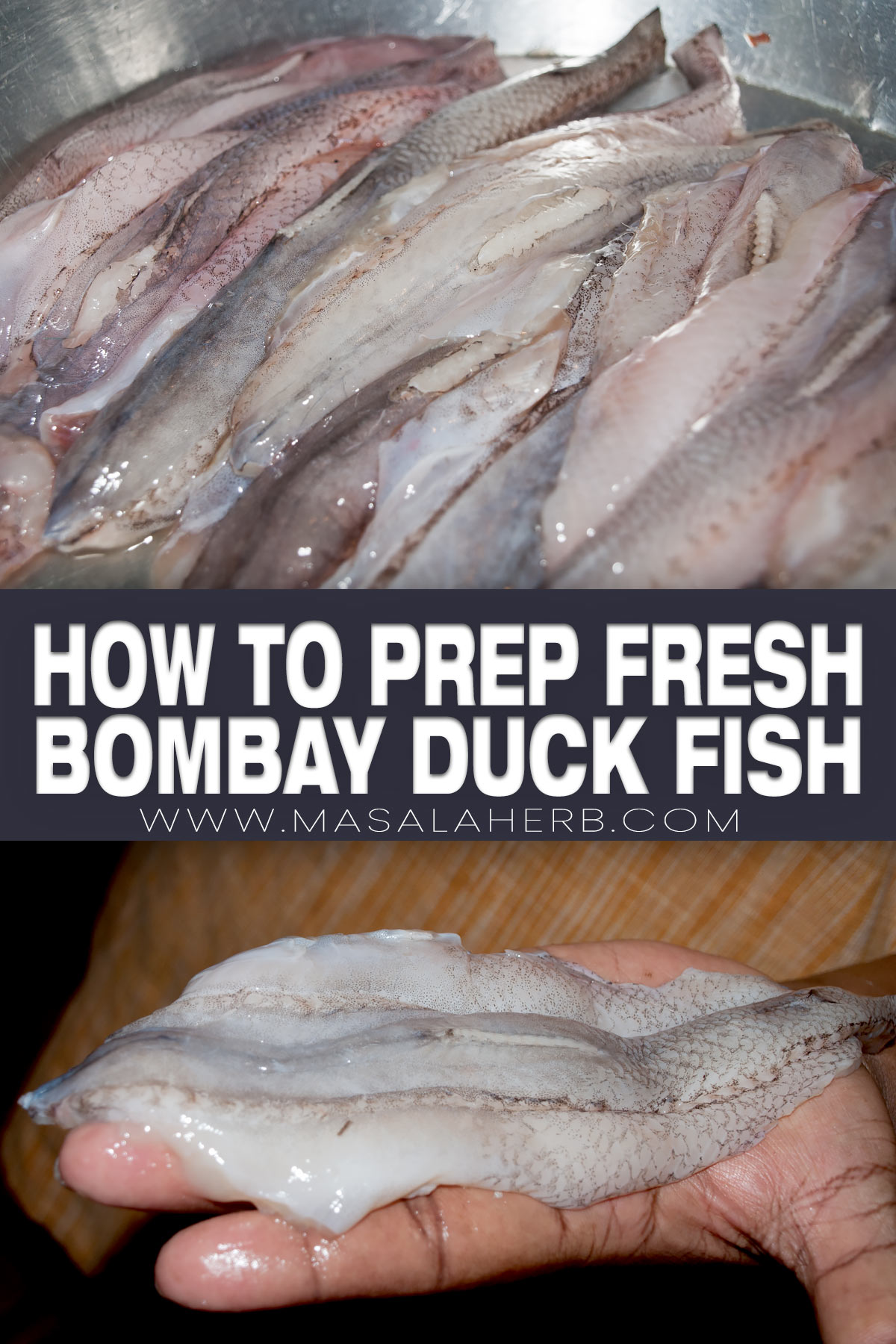
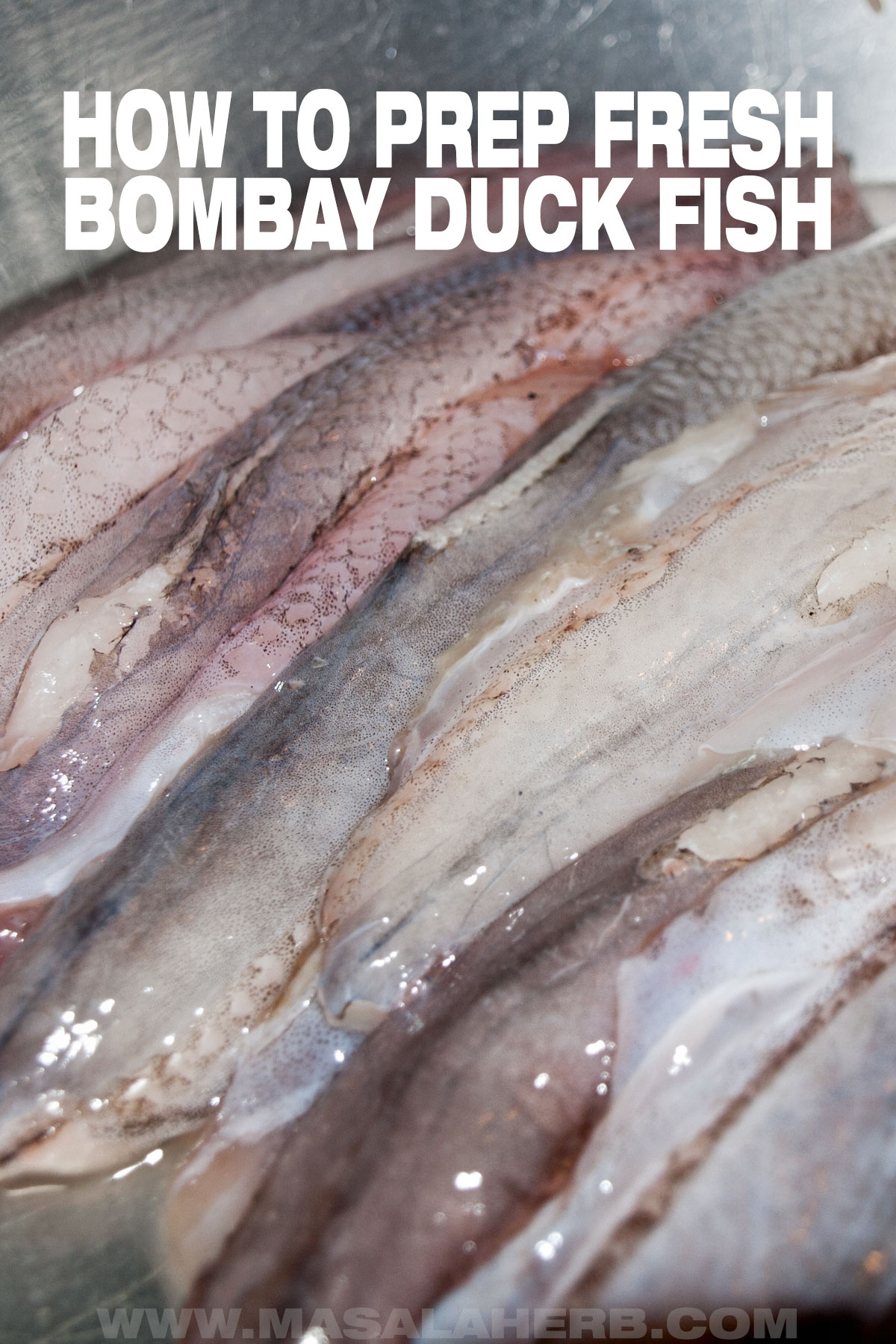
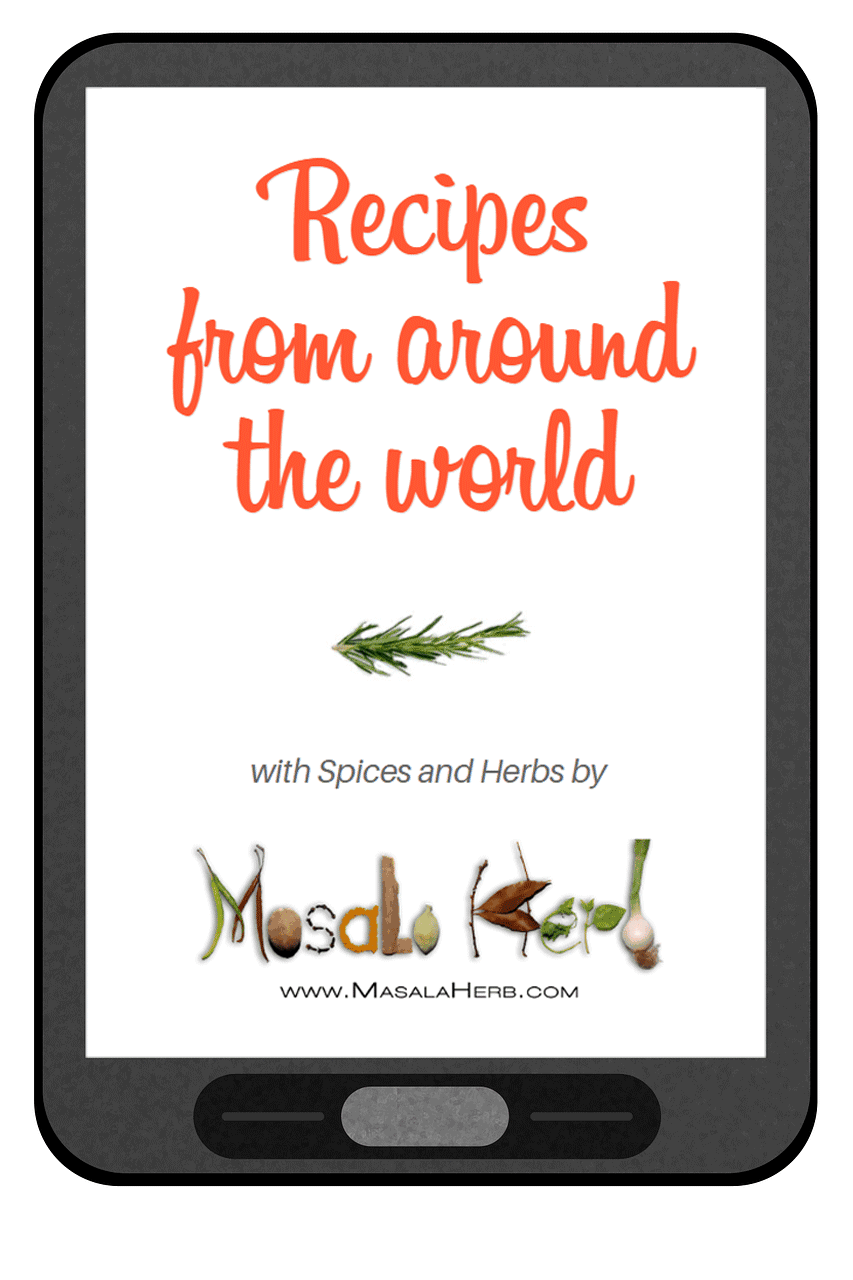
Global Food Recipes
with Spices and Herbs
Free E-Book available for a limited time. Grab yours now and get instantly inspired!
You missed out!

Hey...Aahana (my daughter) just loves this fish. so this fish is at my home almost after every 2 days.
Where will i get bombay duck to make curry in usa. i live in georgia in usa...Email me please if u have any infor...Appreciate it
Thanks
Oh I was too excited about the award that I forgot to comment about the dish!
We have a similar dish. The fish we dry is a type of tuna. It's salted and dried. We call the dried version yobal. It's usually eaten as a snack with lemon squeezed on it!
interesting recipe......